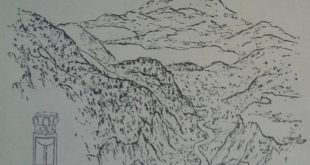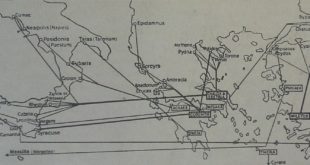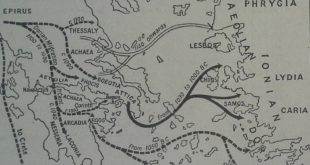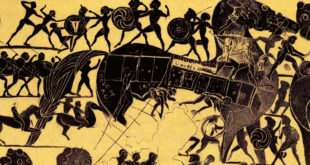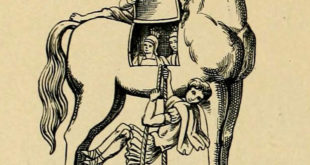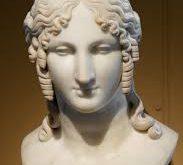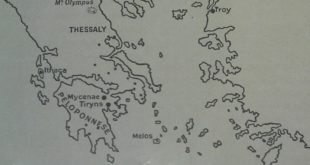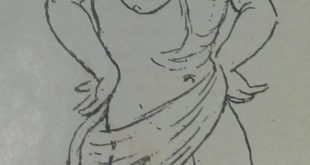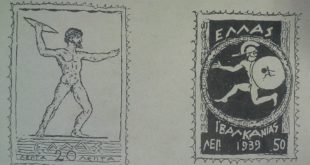The Delphic oracle, the priestess of Apollo, was supposed to have the gift of prophecy. The Delphic Oracle was consulted before a colony was founded, before war was declared and on all sorts of other questions. When a request for advice was put to her through her priests she proceeded to put herself into a trance. She is said to have done this by chewing laurel leaves, drinking water from an underground stream and inhaling an evil-smelling gas which arose through a cleft in the rocks within her shrine (but no traces of this cleft have been found). Finally, seated …
Read More »City-States and Colonies
The two hundred years after 800 B.C. saw a great expansion of the Greeks by colonisation. Colonisation is a more orderly kind of migration. The Greeks now lived in numerous small communities, often no more than towns with surrounding farmlands. They are therefore called “city-states”. Some of these city-states now sent out colonies to southern Italy, Sicily and also to the Black Sea. These colonies became independent but they kept in touch with their mother-city. Miletus in Ionia sent out many of the Black Sea colonies. Byzantium, now Istanbul, was founded by Megara a city near Athens. The most important …
Read More »The Migration
The “Dark Age” of Greece (c. 1100 – 800) was a time of migration and settlement. Whole peoples were in migration mode. People on the move do not have time to write records for us to read later nor do they build palaces which we can dig up. So there is no continuous history of this period, though during it Homer (c. 900) and Hesiod (c. 800) wrote their poems. (Hesiod’s contained two very different ingredients — stories of the gods and practical advice about country life.) The Achaeans were overcome by invaders from the north called Dorians, who occupied the …
Read More »Was there a Trojan War?
Parts of the story of the Trojan War are told in two poems the Iliad (Ilium = Troy) and the Odyssey (Odysseus was one of the Greek Generals) by Homer, the earliest Greek poet. A hundred years ago the war was regarded as a legend, but a German-American, Heinrich Schliemann, who had learned to love Homer as a boy and became immensely rich, determined to try and find Troy by digging. He succeeded, in 1871 and later proceeded to excavate Mycenae. He made many mistakes, but his work and the work of those who followed him have made it possible to …
Read More »The Wooden Horse
In the tenth year of the war the Greek hero Achilles slew Hector, the Trojan, in single combat. (Paris, the cause of all the trouble, never distinguished himself very much in the fighting.) The death of Hector was a cruel blow to the Trojans, particularly to Hector’s old father Priam; but they still did not surrender. In the end they were beaten by a trick. The Greeks built a huge wooden horse, big enough to hold a number of fully armed men. They put the pick of their warriors inside the horse and left it on the shore. All the …
Read More »Helen of Troy
Helen “of Troy“ was in fact Helen of Sparta where she was the wife of King Menelaus. She only spent part of her life in Troy, but it was those years which made her famous. The cause of her going there was the following. The three goddesses, Hera, Athena and Aphrodite (goddess of love) were attending a wedding, when a golden apple was thrown among the guests. It was inscribed “to the fairest”. Naturally, each of the three goddesses claimed it. Zeus ordered Hermes to take them to Mount Ida, near Troy, where Paris would settle their dispute. Paris was …
Read More »The Palace of Minos
So much for the legend. What of the facts? At Cnossos, near Herakleion, in Crete are the ruins of an enormous palace, which must have needed somebody like Daedalus to design it. Its honeycomb of cavernous cellars, traces of which still remain, might well have given rise to stories of a “labyrinth” and though no pictures of the Minotaur himself have been found, bulls occur frequently in the paintings which can still be seen upon the palace walls. Sir Arthur Evans began to excavate this great palace in 1899 and called it “The Palace of Minos”. He did not find …
Read More »Theseus and the Minotaur
The Greeks, then, had their story of the creation of the world, of a great flood and a heroic ancestor; but the only fact we have met so far is that a tribe called Hellenes did in fact exist in Northern Greece. The search now turns southward, to Crete. Once again we begin with a legend. Minos, King of Crete, had a brilliantly athletic son, Androgeus, a beautiful daughter, Ariadne and a monster, the Minotaur, (half bull, half man). The Minotaur was kept shut up in a labyrinth, a vast network of caves and underground passages, designed by Daedalus, a …
Read More »Who were the Hellenes?
GREECE is a country that people go to on cruises in spring, summer and autumn. Like other people who go on cruises, they are in search of sunshine. They pack bathing suits. But, unlike most other people who go on cruises, they also pack a lot of books-The Iliad, The Odyssey, How to enjoy GreekArt, The Greek CityState, The Play: of Sophocles. Some of the books are in Greek, e.g., The Apology of Socrates. There is another queer thing about cruising to Greece. The labels on the passengers’ luggage probably do not have the word “Greece” on them at all. …
Read More »Leadership of Churchmen and Nobles in the Middle Ages
The civilizations of India, China and the Moslem world progressed to about the year 1500 A.D., but what had been happening in western Europe in the centuries after Roman power began to decline and barbarian tribesmen had overrun the lands once part of the proud Roman Empire? What had taken the place of Roman might, government and law in western Europe? As Rome’s rule faded away, western Europe entered a period known as the Middle Ages or the medieval period. For a long time there was neither a single empire nor nations as we know them to day. Central governments, …
Read More »